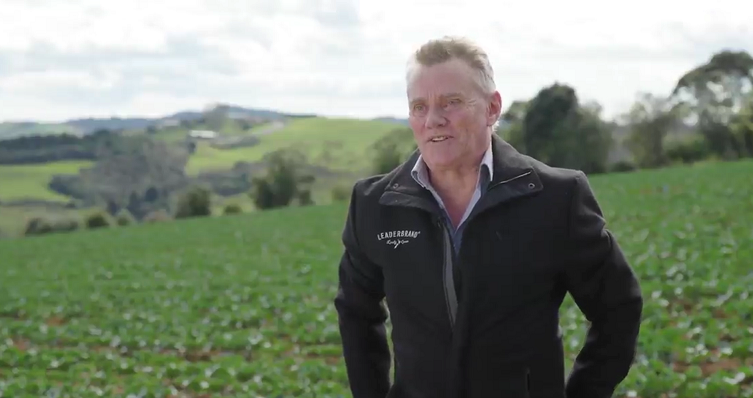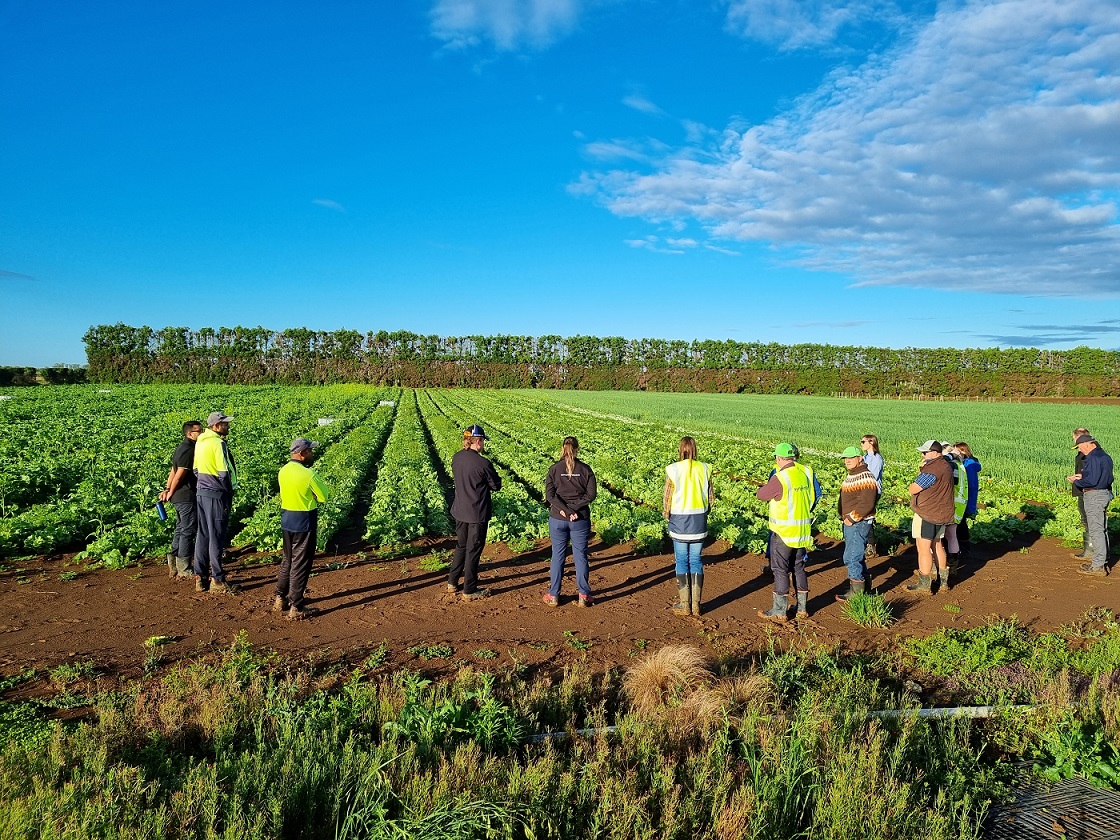A founding stakeholder in A Lighter Touch sees the sector-wide collaboration at the heart of the programme as a vital ingredient in meeting a growing demand for ‘lighter touch’ production systems.
That’s the view of Stuart Davis, Vegetables New Zealand’s representative on the programme’s Industry Stakeholder Advisory Group (ISAG). As the chair of ISAG, Stuart also contributes to the programme’s governance body.
“The challenges of meeting the demand for ‘lighter touch’ production systems are only going to grow with reduced availability of crop protection products and climate change,” he says.
The relatively small number of crop protection products coming into New Zealand that are specifically registered for use on vegetable crops was one of the drivers for the sector to begin working strategically with other crop groups on crop protection issues.

Stuart Davis is chair of A Lighter Touch’s Industry Stakeholder Advisory Group and represents Vegetables New Zealand.
“Vegetable growers have long recognized the need to move away from older broad-spectrum products due to their environmental and off-target impacts. At the same time, it was necessary to maintain enough modes of action to avoid the development of pest and disease resistance.
“With the exception of a few significant export crops, most of New Zealand’s horticulture industry can be regarded as minor crops in terms of production area. As such, we see fewer products being brought into New Zealand and registered for use on those crops, therefore reducing the tools in the grower’s toolbox.”
In the face of these challenges, in 2009 the vegetable industry began collaborating with other minor crop groups to prioritise gaps in existing crop protection programmes in order to address the key challenges of access and acceptability.
“Access was, and continues to be, impacted by regulatory review of products and commercial withdrawal from the New Zealand market. Acceptability factors include residue levels unacceptable to customers and growers, non-target effects, resistance, and non-compatibility with Integrated Pest Management (IPM).”
A four-year Sustainable Food and Fibre Futures project followed, focusing on sustainable agrichemicals for minor crops. It involved five vegetable and seven fruit product groups and also strengthened working relationships with the likes of crop protection companies and researchers.
This project ended in 2015, and on the back of its success, the Vegetable, Research and Innovation Board, of which Stuart was chair at the time, mooted the concept of a broader programme across food crop protection industries. Over time this evolved into the $27 million, seven-year programme now known as A Lighter Touch.
Four years into A Lighter Touch, Stuart sees the vegetable sector as making a valuable contribution to the success of the programme.
“Vegetables New Zealand represents over 50 crops, many of which are small and very reliant on off-label use. Other crops such as brassicas and lettuce have comprehensive IPM and resistance management programmes developed over decades.

Growers and advisors taking part in Intergrated Pest Management workshops, hosted by Vegetables New Zealand, at the Pukekohe demonstration farm. Credit: Daniel Sutton.
“As a product group, we are microcosm of Horticulture NZ – and in fact the product groups who make up A Lighter Touch. We bring an understanding of both small crops with limited crop protection programmes and resources, as well as a long track record of collaboration amongst grower groups to develop industry-wide programmes.”
Due to its diversity of crops, Vegetables New Zealand shares common ground on crop protection problems with almost every other product group that partners in A Lighter Touch.
“Even if we are not directly involved in joint funding of projects led by other groups, we often have insights that assist in setting them up. Likewise, we find previous results and experiences of other crops useful in planning our projects.”
Stuart has seen new connections being made between product groups through A Lighter Touch and says attention is now focusing on outcomes that will endure beyond the current programme.
“A Lighter Touch itself is a seven-year programme, but what it’s aiming to achieve is step change in our approach to crop protection and the way we produce our food. That work is going to continue to develop and evolve, and be informed by what comes out of this programme.
“The legacy of A Lighter Touch is what we’ll see happening on farm in terms of crop protection in 10 and 20 years from now.”